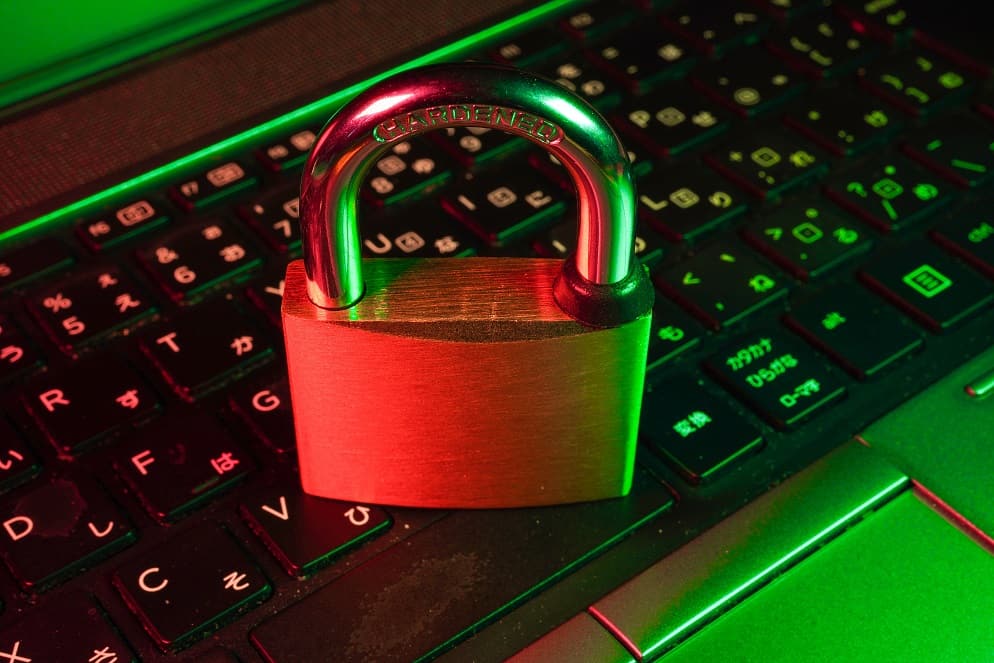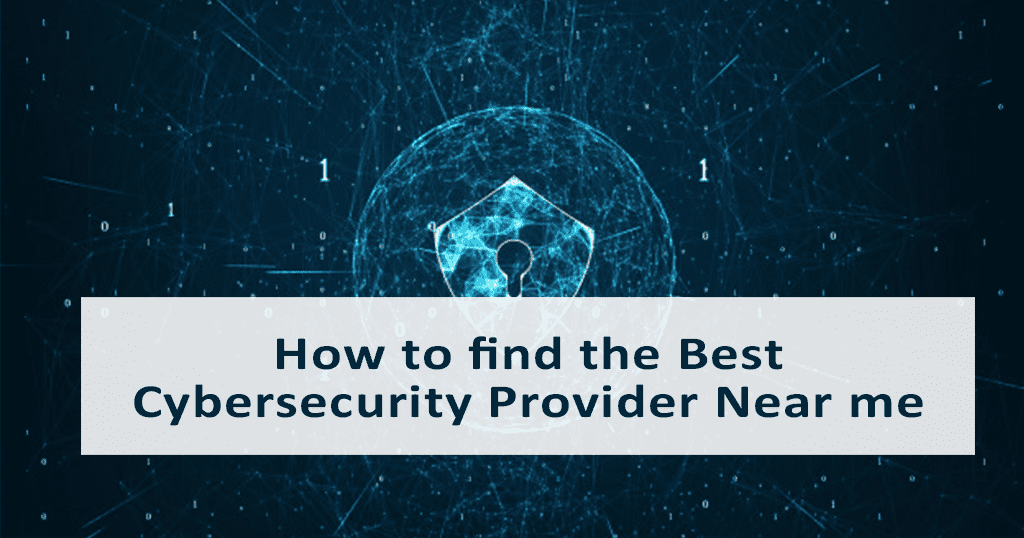This post includes:
- What is Cybersecurity?
- What is Cybersecurity Audit?
- Why is Cybersecurity Audit Important?
- What are the Types of Cybersecurity Audit?
- How is a Cybersecurity Audit Performed?
- Best Practices for Cybersecurity Audit
- Tips for Cybersecurity Audit
- Things to Remember
- Conclusion
- FAQs
What is Cybersecurity?
First, it’s important to understand cybersecurity as a concept before jumping into what the Audit involves. Put simply, cybersecurity is the protection of cyber systems, networks, and digital platforms from cyberattacks. Cyberattacks are carried out with the purpose of accessing, manipulating, stealing, destroying confidential information, stealing money from users, and disrupting business processes.
Successful cybersecurity entails multiple layers across computer systems, networks, programs, and databases. The organization and the employees should ensure protection from cyberattacks, with a comprehensive plan to manage any threats.
Cyber security must be updated regularly, and effective practices should be adopted to face any new threats. Since the methods of attack by hackers are always changing, more innovative technology for security is needed.
What is Cybersecurity Audit?
“It takes 20 years to build a reputation and few minutes of cyber-incident to ruin it.” Stéphane Nappo, Global Chief Information Security Officer at Société Générale International Banking.
Cybersecurity audits are a method to assess an organization’s compliance with security norms. Agencies that conduct these audits check if appropriate measures are adopted to handle a cyberattack, and ensure compliance with regulatory laws.
The third-party conducting the audit work independently to eliminate any conflicts of interest. The audit itself covers management practices, governance, risk management, and compliance provisions such as GRC.
With the rise in the number of cybersecurity attacks, the need for cybersecurity audits is greater than ever.
Why is Cybersecurity Audit Important?
“There’s no silver bullet solution with cyber security, a layered defense is the only viable defense.” James Scott, Institute for Critical Infrastructure Technology.
The sudden surge in cyberattacks during the pandemic has put security at the forefront of concerns for major businesses around the world. To put it simply, security methods that work today, might not work tomorrow.
The evolution of cyber threats
Unfortunately, there will always be cybercriminals, creating new viruses and malware to bypass outdated security measures. By ignoring these threats, organizations invite unwanted risks. The long-lasting effects of an attack can not only financially cripple a business, but ruin its reputation as well.
The vitality of new security patches
Regularly held Cybersecurity audits reveal the importance of consistently improving digital frameworks in different departments. This includes operating systems, email services, IT infrastructure, and the devices used in the network. You can avoid cyberattacks by being proactive!
Compliance with cybersecurity standards
It is now mandatory to comply with the minimum cyber security standards provided by the government. These regulations can vary and may be difficult to accomplish for your industry. An audit can help streamline this process, so everything is up to code.
Work from home phenomenon
Since the pandemic, many employees transitioned into working from home, a trend that is only increasing. This makes it considerably easier for cybercriminals to attack and exploit users. However, these risks can be mitigated by employing better network security protocols and using zero trust architecture.
Regular briefing on security threats
Cyber attackers throughout the world are launching new campaigns for cyber-attacks. Even organizations as large as the World Health Organization (WHO), have been targeted in the past and had employee passwords exposed. Therefore, any business, organization, or company, should take the necessary precautions to protect their data.
This is why cyber security audits are so beneficial. They will help make your enterprise as protected as possible, strengthening existing security infrastructure, and supplying the tools to recover from a breach.
How is a Cybersecurity Audit Performed?
Steven Chabinsky, Global Chair of Data, Privacy & Cybersecurity at White & Case LLP has stated “Thinking of cybersecurity solely as an IT issue is like believing that a company’s entire workforce, from the CEO down, is just one big HR issue.”
According to a study by the Business Continuity Institute, a quarter of business interruptions per year are due to cybersecurity incidents. Recall the last time you updated your cyber security plans! Are you adequately protected? An audit is the best means of finding out.
Review as much as you can!
First and foremost, review all documented plans. If you have policies and procedures written that are not up to your standards, come up with strategies that are more suitable.
Identify risks and assess
Identifying the threat is arguably the easy part. Look over your business assets like computers and phones and speak directly to your employees. Count every aspect during policy planning.
Inspect current security
Honestly take a look at the potential risks to your company, and the tools available to combat them. Tools will vary depending on the level of sophistication in the technological infrastructure of your business. So, find the faults, make a list, and rectify those failings as soon as possible.
Choose the applicable security standards
After reviewing each policy and plan, check if they follow all security standards, and furthermore if they follow your standards as a business owner.
Assess the practical plans
Imagine if a breach occurs in your organization, what is the first step you take? Who would, or could you contact to fix the situation? It’s best not to wait until there is an actual problem before finding that out.
Best Practices for Cybersecurity Audit
“If you spend more time on coffee than on IT security, you will be hacked. What’s more, you deserve to be hacked.” Richard Clarke, White House Ex-Cybersecurity Advisor.
A trusted third party should be hired to conduct cybersecurity audits, with your company ready to act on the findings of the audit as soon as it is completed.
Acquiring solid information
The primary task of an organization should be to review the audit agency’s policies on cybersecurity. Understand how the auditors think of data confidentiality, availability, and integrity. Provide them solid information regarding your security policies to yield the most benefits from the audit.
Centralization of compliance policies
Prepare a single list for the cyber security compliance documents. This can benefit the auditor by identifying any issues that may arise, making the entire process that much faster. Documents related to disaster recovery, access control, remote work, acceptable use, and business continuity should be included.
Detailed network security structure
Organizations should prepare to rectify gaps in security and network stability found during an audit. A network diagram helps by offering a comprehensive overview of the IT structure and hastens the overall assessment process. Make a network layout and detail on how each asset works with others.
Reviewing compliance standards
The IT and cyber security head of an organization should regularly review the compliance standards and requirements before starting a cybersecurity audit. This is one of the most important steps to ensure a cybersecurity audit is successful.
List of responsible cybersecurity personnel
A list of cybersecurity and IT department employees with their responsibilities should be prepared before the audit takes place. The auditors often interview the security personnel to gain better insights into the security architecture.
Tips for Cybersecurity Audit
“Security is always excessive until it’s not enough.” Robbie Sinclair, Head of Security, Country Energy, NSW Australia.
Before finalizing a date for the audit, keep the following in mind.
- Clarify the objective of the cybersecurity audit before it begins
- Is it based on internal IT infrastructure or the external?
- An organization using the cloud for storage is always at a higher cybersecurity risk
- The objective of a cybersecurity audit should be within your means
Things to Remember
Cyber security audits can be nerve-wracking. There is a lot of information to provide, and much to do before the initial assessment. Remember NOT TO DO these things ever during a cyber security audit.
Do not lie or give false information
It is a criminal offense to give wrong information or lie to an auditor. Audits don’t necessarily mean that you are checked for fraudulent activities or criminal behavior only. Be honest, and don’t give any reasons to doubt said honesty.
Do not be unprofessional
Never act unprofessionally with an auditor. Be as cooperative as possible and assist them in any way you can.
Do not do their job
Auditors are responsible for carrying out fair assessments. You should not try to get ahead of them and do their job. Be forthcoming with information, but do not interfere.
Do not shy from querying
Just because an audit is intimidating, does not mean you can’t ask relevant questions to the audit team. Open discussions are always welcome.
Do not provide original papers
Providing original documents for an audit is not a good idea. Make multiple copies and provide them, as it’s unlikely for files to be returned once the audit is over.
Do not appear without an attorney
It is highly recommended to have a lawyer before appearing in front of the auditors. The lawyers/attorneys have a better understanding of the process and make things a lot smoother for you and your company.
Conclusion
“A business will have good security if its corporate culture is correct. That depends on one thing: tone at the top. There will be no grassroots effort to overwhelm corporate neglect.” William Malik, VP and Research Area Director for Information Security at Gartner.
Cybersecurity is the backbone of an organization‘s IT infrastructure. The predicted damage cost for cyberattacks as of this year is $6 trillion. Even if your business could handle the monetary damages of an attack, the loss of reputation and customer trust is irreparable. Companies need to realize how important a cybersecurity audit is for breach prevention. Not only will it offer peace of mind, but potentially save your business from going under.
FAQs
How Do You Audit Cyber Security?
Cyber security audits are performed in four convenient steps such as:
- Conducting reviews
- Assessment of risks
- Consideration of security standards
- Assessment of enacted plans
Are Cyber Security Audits Important On Company Systems?
Yes, cyber security audits are required by law to maintain data security. The employees must comply with the cyber security policies adopted in a company.
Why Do We Do Security Audits?
A security audit is done to assess risks and enact policies to counter them. It is an effective way to prevent any security leaks.
Why Is Security Important?
Having high-profile security in the organization’s IT and non-IT systems reduces the risk of data breaches and cyber-attacks. It prevents disruption in company services provided and protects the network from outside exploitation.
What Does an IT Security Auditor Do?
An IT auditor is someone who manages and analyses information technology threats. They also identify optimization methods to reduce those risks and communicate with the other departments in the organization.
What are the 3 Main Types of Audits?
There are three primary types of audits conducted in a company. These are:
- Internal revenue service audits
- Internal audits
- External audits
How Can I Become an IT Auditor?
The eligibility criteria to become an IT auditor includes the following:
- A relevant undergraduate degree in the field of finance, accounting, business administration
- Special accounting certifications
- Several years of work experience
What is a Physical Security Audit?
Mostly the security audit is conducted by an independent organization. The physical security measures adopted by a business are evaluated accordingly, with any issues identified in the security system being managed by responsible authorities.
How Do You Prepare for a Security Audit?
There are some common tips to be followed before a security audit that includes:
- Acquire all relevant information
- Perform a self-assessment of security policies
- Establish better policies
- Assign roles to employees
- Review assessment results
- Address any issues
What is System Security Audit?
Companies under regular audits may also go through a system security audit. It is an assessment of a high-level security system installed in an organization.
What are the Types of Security Audits?
Multiple types of audits include:
- Internal audits
- External audits
- Taxation audit
- Information system audit
- Compliance audit
- Financial and operational audits
- Payroll audit
Some of the common security audits in business include:
- Risk assessment
- Compliance audit
- Vulnerability assessment
- Penetration testing
What are the 4 Phases of an Audit Process?
The commonly followed procedure in an audit include these four phases:
- Preliminary reviews & survey
- The audit itself
- Review on report
- Audit report preparation
What are the 4 Phases of an Audit Process?
Usually, audits take up to 3 to 6 months. This expected delay is due to regulatory tax and other deadlines. The IRS started audits after a company files the return. Should information be incomplete, the process will take longer.




